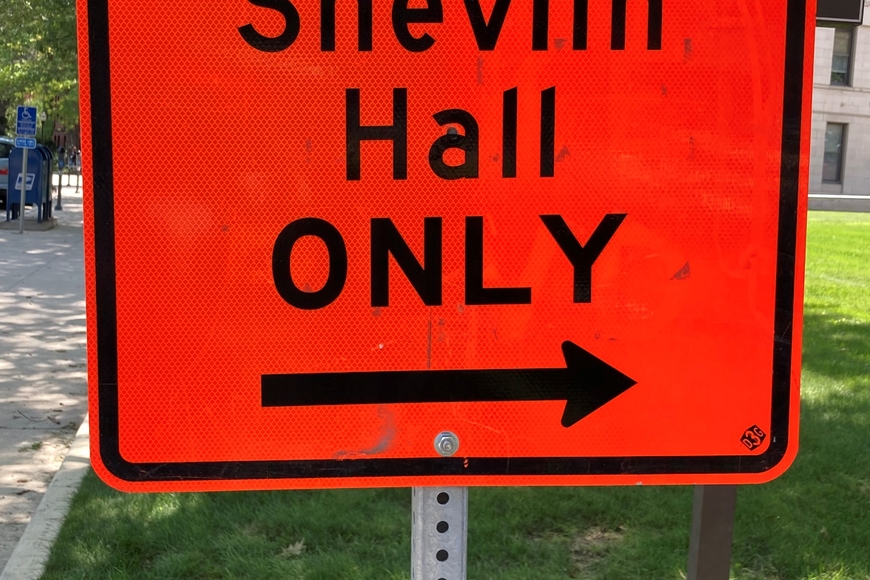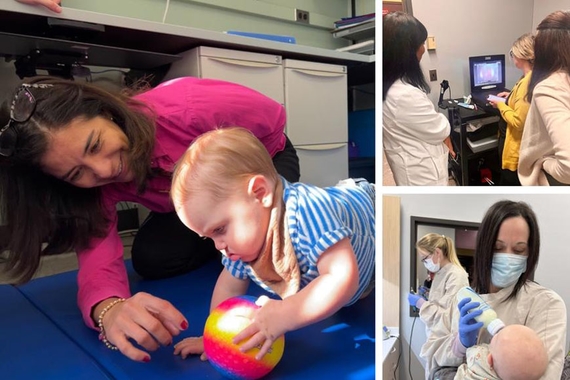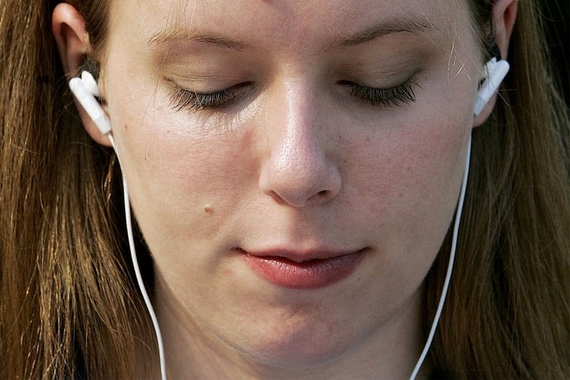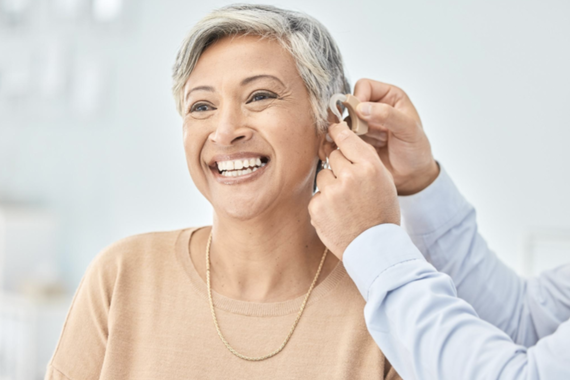A Letter from the SLHS Chair
Dear SLHS Undergrad Students:
I’m Benjamin Munson. I’m the chair of the Department of SLHS. As chair, it’s my responsibility to oversee all of the teaching, research, clinical, and service activities in the department. As such, I hope that you feel comfortable reaching out to me if you have any questions about the department. You are always welcome to contact the other department leaders, including those cc’ed on this email, including our undergraduate adviser Dr. Bill Solheim, our director of undergraduate studies Dr. Yang Zhang, our department administrator Rachel Ayers, and our principal office specialist Amanda Greenhart. I've also cc'ed our department's graduate and clinical programs leadership. If you’re unsure of who to ask, please reach out to any of us--we are happy to triage your questions.
I’m sure many of you are wondering what Fall 2020 will look like. As you will soon see on our course schedules, most of the SLHS classes have been moved online for the fall. The choice to move to an online schedule was made for one simple, unimpeachable reason: safety. Our department is united in its support of safer choices for all. We were also motivated by the need to be efficient. The uncertain nature of Fall 2020 overall means that there are lots of scenarios in which we would revert to online education anyway. (The Chronicle of Higher Education shared a story about a simulation that was run about life on campus under COVID-19. By planning for online education ahead of time, we give ourselves the entire summer to prepare for high-quality online courses, and department-wide online activities to build and strengthen our communities.
Each department at the U was given a choice of how to handle Fall 2020, and other departments made very different choices from ours. The University of Minnesota’s plan to open in the fall includes very sensible, science-based guidance for social distancing. Classroom capacities will be reduced 75% so that social distances can be maintained among people in the room. Given the size of most of our classes, this effectively makes it impossible for us to teach in person: none of the classrooms that SLHS schedules its classes in can hold more than about 20 people, including the instructor. While it might be possible to find other classrooms on campus to hold classes in, the challenges to this are bigger than one might think: only a handful of classrooms can hold more than 30 students under social distancing guidelines, and only a few can hold more than 50 students. Moreover, the University has mandated that all instructors must find ways to accommodate students who cannot attend classes in person because of health reasons.
By prospectively scheduling our classes to be online, we effectively side-step the problems associated with keen competition for space on campus, and the challenges to the time and resources of instructors to offer parallel in-person and online options. Moreover, because there will be some in-person clinical services in Shevlin Hall, we need to reduce other traffic in our building to protect the health and safety of the clients we serve.
Our choice to move online has given us this entire summer to prepare for the very highest-quality online offerings. All instructors are engaged in a department-wide training program for online education, and we are sharing the lessons learned from last spring’s unexpected pivot to alternative modes of instruction. Rather than breaking for the summer, we have continued to meet every week, and those weekly meetings regularly include group work on pedagogy. I am confident that the courses that we will offer this fall will be the kind of high-quality offerings that you have come to expect from a world-renowned university like ours.
How will life look outside of class? Every facet of university life will change, and you are likely hearing a great deal about these changes in emails from other units on campus, like residential life. I can say this much: SLHS is planning a variety of activities to ensure that you have as many opportunities as you like to stay engaged outside of the classroom. As we thought about these activities, we were influenced by the report “Understanding What Matters Most in the Higher Education Experience: The Perspective of Recent College Graduates" (PDF), which our dean shared with us recently. This report is quite eye-opening, and I encourage you to look over it. You might also consider it sharing it with people who are supporting you in your college journey: friends and family.
One key factor to success is relationships with faculty. Hence, we are developing policies and activities to ensure that faculty continue to be collected with and available to students, even when in-person connection will be relatively rare. Another key factor from this report is the importance of a sense of belonging. Hence, we are actively thinking of ways to build an online community to reinforce your sense of belonging in our SLHS family.
Some of these are:
-
We will be setting up opportunities for undergraduate students to receive observation hours in speech-language pathology and audiology remotely, using the Master Clinician Network.
-
The department’s chapter of the National Student Speech-Language-Hearing Association (NSSLHA) is organizing a number of fall events, many of which center on promoting anti-racism actions in our field and in our professions. If you haven‘t yet read the department’s response to the killing of George Floyd, please take a look at our department’s statement.
-
Many of the department’s research activities will continue. Some of these activities will continue in person, and will eventually allow for student participation in person, provided that the research project has appropriate clearance and appropriate project-specific safety plans in place. Still other research projects will continue at a distance. For example, Dr. Alayo Tripp's and my research on race and speech perception has been altered to include an online component.
Please don’t hesitate to reach out to professors and others in the department if you are interested in volunteering in research. The public health response to the pandemic has created new lines of potential research (How do masks affect speech intelligibility? Do children with developmental language disorders have an especially hard time perceiving speech when it comes over the internet?), and many of our faculty are working on new projects that address these kinds of issues. -
The department’s leadership team will be holding weekly open meetings where you can stop by and chat with us about anything on your mind. We can use Zoom’s break-out rooms feature to have private one-on-one conversations, if needed.
We are also open to hearing from you about activities that you would find helpful for community building. Please respond back and share any ideas you have.
None of us knows how long this will last. I hope that this message conveys to you that we have your interests at the top of our minds. We intend to give you the best educational experience possible, while never compromising the safety and health of our students, staff, faculty, clinicians, and clients.
If you have any questions, please do reach out. In the meantime, enjoy the rest of your summer.
Yours,
Benjamin Munson, Ph.D.
Professor and Chair
Department of Speech-Language-Hearing Sciences
University of Minnesota
Pronouns: he, him, his
Preferred Honorific: Mx.



